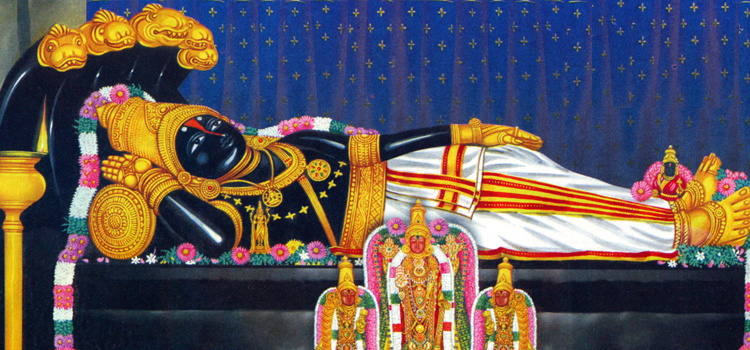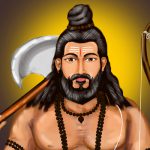Introduction
An auspicious day dedicated to Vishnu, the Supreme Preserver, Vaikuntha Ekadashi is observed in all Vishnu temples across India. The day is extremely auspicious for devotees of Vishnu as they believe that VaikunthaDwaram, the heavenly abode of Vishnu,opens on Vaikuntha Ekadashi day. The day is fervently observed across all Vishnu temples.
Vaikuntha Ekadashioccurs on the eleventh day of the Shukla Paksha in the Paush month. The festivalo ccurs according to the Hindu calendar in the month of Margashirsha.
People celebrate the festival with much fervor. On this day, temples organize special discourses, yagnas, and prayers. In South India, the festivities assume a grand note.
The day is observed as Mukkoti Ekadashi in the month of Margazhi as per the Tamil calendar. People in Kerala celebrate Vaikuntha Ekadashi as Swargavathil Ekadashi.
Significance of Vaikuntha Ekadashi
Vaikunthais the abode of Vishnu, where he sleeps on the Shesha Naga, a three folded serpent in the KshiraSagara. The doors of Vaikuntha are closed for the rest of the year and only thrown open on Vaikuntha Ekadashi. Vaikuntha means without any deficiency. On this day, devotees need to worship Vishnu, the Supreme Preserver, with fervor shedding their ego if they need to reach Vaikuntha after death.
Every year, when devotees observe fasting, they prepare themselves to attain salvation and be rid of their sins. Devotees firmly believe that if they observe the fast on Vaikuntha Ekadashi, they will reach Vaikuntha and do not have to face Yamaraj, the God of Death. Devotees feel if they die on this day, they are released from the cycle of birth and death and finally reach Vaikuntha.
It is believed that Vishnu opened the doors of Vaikuntha for two asuras who were against him. The concept of Vaikuntha Ekadashi is a chance for redemption. God is ready to forgive those who have done wrong, and they accept and understand their mistakes, and are prepared to undergo punishment for them.
The Vaikuntha Ekadashi finds mention in scriptures like Padma Puranas. According to the Vishnu Purana, fasting on Vaikuntha Ekadashi is akin to fasting on the remaining 23 Ekadashis of the year. According to Vaishnava tradition, fasting should be observed on the Ekadashis of both the Shukla Paksha, as well as the Krishna Paksha.
Legend of Vaikuntha Ekadashi
The Sagar Manthan occurred on the day of Vaikuntha Ekadashi when the ocean of milk was churned, and nectar was obtained by the Gods. It is said in the Mahabharata, that Bhishma waited, lying on the bed of arrows for this day to breathe his last.
Another legend, as per the Padma Puranas, has it that the female energy of Vishnu killed a demonMuran to protect the Devas. A demon named Muran was growing increasingly destructive, and one day the Devas sought the help of Vishnu. He took on Muran, and a fierce battle ensued. Vishnu took rest in a cave to create a new weapon that would annihilate Muran. But feminine energy emerged from Vishnu and shielded him from the demon’s attack. Her power killed Muran. Her devotion pleased Vishnu, and he named her Ekadashi. When he granted her a boon, she requested that those who observed a fast on the eleventh day should be relieved from the cycle of birth and death.Vishnu granted her a boon and said thatanyone observing the day would reach Vaikuntha.
Rituals Associated with Vaikuntha Ekadashi
People also observe Vaikuntha Ekadashi as Guruvayur Ekadashi. People observe special celebrations 21 days before Vaikuntha Ekadashi, and the festivities continue ten days after Ekadashi. Vaishanvite temples hold celebrations with fervor. People observe a fast on this day and refrain from consuming rice, wheat or pulses, and do not even drink water.
Anyone who receives a Bhagavad Gita as a gift on this day realizes it has the blessings of Shri Krishna. Devotees recite the Vishnu Sahasranamam, Vishnu Puranam, and Narayana Kavacham. They also recite the Narayana Mantra and the Ashtakashari Mantra.
Devotees offer fruits, sweets, Payasam, and Tulsi leaves as Neivethanam to God. They keep a vigil at night and hear stories of Vishnu. Bhajans are sung, and devotees visit Vishnu temples. Devotees break the fast on the following day – the Dwadashi Tithi.

